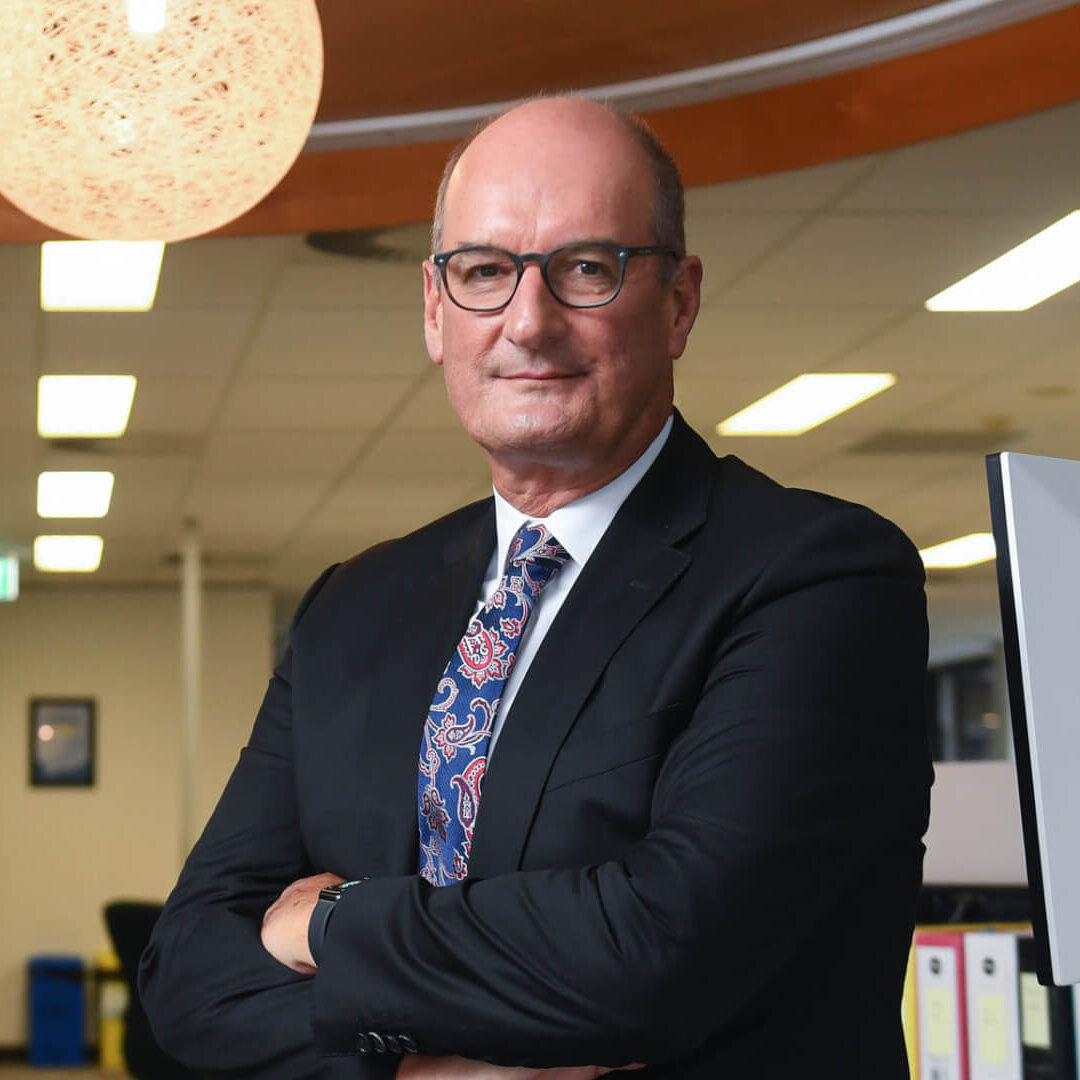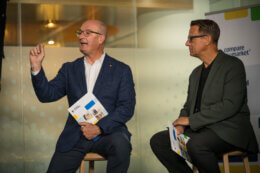
Shocking new data revealed 95% of Aussies think the school curriculum needs an overhaul.
The quintessential Aussie schooling experience features a bit of algebra, the Pythagoras theorem, some Romeo and Juliet, and – inexplicably – how to play Hot Cross Buns on the recorder.
But ‘one a penny, two a penny’ won’t get you very far when it comes to managing the household budget and that’s exactly where our education system could be letting us down.
Aussie kids aren’t learning anywhere near enough about personal finances, with Compare the Market research revealing most Aussies received little to no money education at school.
In today’s difficult economic climate, knowing some budgeting basics could be the difference between saving for life’s small pleasures and sliding headfirst into debt.
And for a long time, we’ve been told that it’s a parent’s responsibility to teach their children about finances. But times have changed.
While parents still play a key role in transferring financial attitudes, behaviours and knowledge to their children, many people feel the curriculum could be improved.
A recent Compare the Market survey revealed that 65% of people said that ‘how to be smart with money’ is the most important topic that should be taught in school.*
This was followed by how the economy works (13%), the taxation system (6%), and debt (5%).
Which subject do you think is the most important to teach children at school? | Gen Z | Millennials | Gen X | Baby Boomers | Total |
How to be smart with money (financial literacy, paying bills, etc) | 60% | 61% | 66% | 71% | 65% |
How the economy works (inflation, the cash rate, etc) | 14% | 16% | 14% | 10% | 13% |
The taxation system | 12% | 9% | 3% | 2% | 6% |
Debt (credit cards, loans, etc) | 4% | 5% | 7% | 4% | 5% |
Superannuation | 5% | 5% | 4% | 2% | 4% |
Other (please specify) | 2% | 1% | 2% | 7% | 3% |
Purchasing property | 1% | 2% | 3% | 3% | 3% |
Medicare levy surcharge | 2% | 1% | 1% | 1% | 1% |
Total | 100% | 100% | 100% | 100% | 100% |
Survey of 1006 adult Australians conducted in June 2024.
Nowadays, it’s rare for one parent to work while the other stays at home to raise their kids. The rising cost of living has made it nearly impossible to survive on one income.
In Australia, both parents often work full-time jobs to support their families. This means they would only have weeknights, weekends, and holidays to teach their kids about money.
More than 95% of Australians believe children should receive greater education about managing personal finances and budgeting during school, according to a Compare the Market survey. **
In the same survey, a startling 18% of respondents said they were never spoken to about money, and 29% said they were rarely spoken to about money.
Meanwhile, over a third of people said they were sometimes spoken to about money (34%).
Just 19% said their parents spoke to them often about money.
The thing is, money used to be such a taboo topic no one spoke about how much they earned or what their money goals were (if they had any).
Although it’s gotten better with the rise of the digital age and access to information, there’s still a lot of work to do to improve financial literacy.
According to a study from the University of Western Australia, 8.5 million Australians – 45% of the adult population – don’t understand at least three basic financial literacy concepts: interest rates (especially compounding interest), inflation and diversification.
These basic financial topics affect everyone, yet none of them are taught in school unless you opted into an economics subject.
What can the government do?
A number of advocates, including the Ecstra Foundation and Your Financial Wellness group, have recommended the government reactivate the National Financial Capability Strategy.
This strategy used to be run by the consumer regulator ASIC, and has been recently transferred to the Treasury, but we haven’t heard anything since 2022.
That’s why Compare the Market is calling for the Treasury to make financial literacy a compulsory unit in the school curriculum.
Students need to be taught ways to manage their personal finances, budgeting, how to pay bills and the importance of saving money.
While it may seem like common sense to some, there’s a reason why Buy Now Pay Later services has taken off. People don’t want to save up and wait for their reward, they want it now.
Which is exactly why Buy Now Pay Later services, just like credit cards or loans should be spoken about in school as well.
These are all essential life skills that many of us have had to learn on the go and unfortunately, some people have suffered financially because of their lack of financial knowledge.
The government needs to commit to a national strategy that will provide funding for developing financial literacy and investigate where we have previously gone wrong.
Financial illiteracy can lead to debt, poor credit, bankruptcy, housing foreclosure and other negative consequences.
However, financial illiteracy doesn’t just affect individuals; it also increases the financial risk to the economy – which is precisely why the Treasury should be concerned.
Time to ditch the off-key music lessons for an education in money skills that kids can use every day. Because let’s face it, I’d much rather eat hot crossed buns than hum about them!
*Survey of 1004 adult Australians, conducted in June 2024.
**Survey of 1000 adult Australians, conducted in November 2022.
For more information, please contact:
Natasha Innes | 0416 705 514 | [email protected]
Compare the Market is a comparison service that takes the hard work out of shopping around. We make it Simples for Australians to quickly and easily compare and buy insurance, energy, and home loans products from a range of providers. Our easy-to-use comparison tool helps you look for a range of products that may suit your needs and benefit your back pocket.








